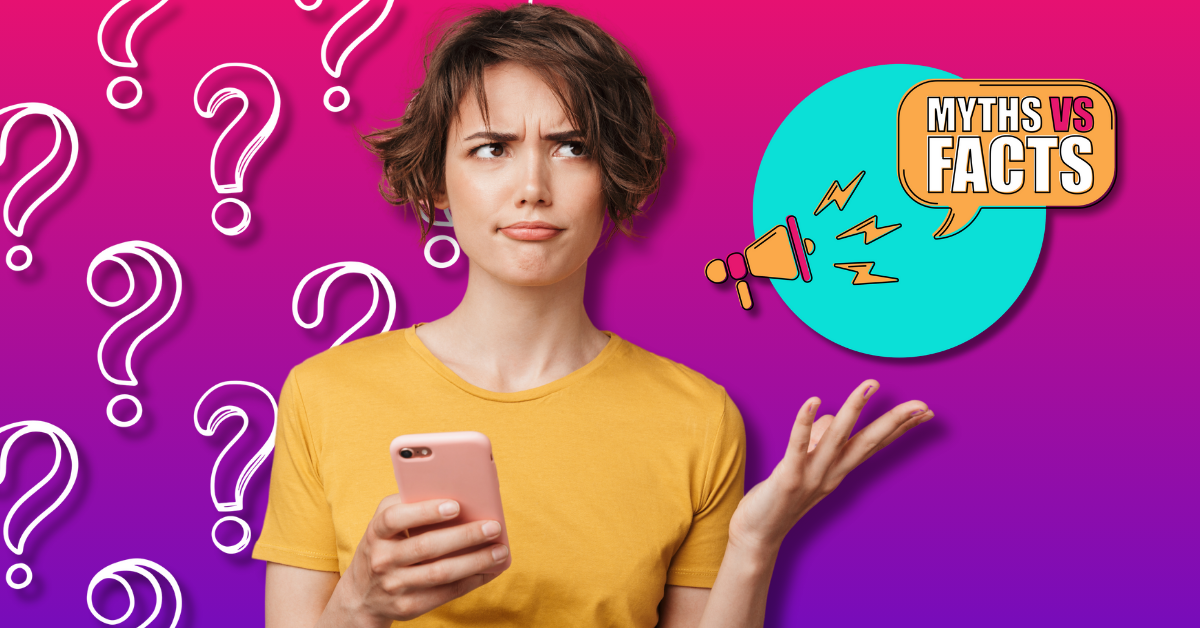Mapping out personalities with The Myers-Briggs Type Indicator (MBTI) is a widely-used psychological tool that places people into one of 16 personality types–it’s been around for a long time, and you probably know which one you fall into!
So, what does it have to do with how different MBTI types communicate and handle conflict and resolution? More than you would think!
Understanding MBTI can be a potent way to unlock the enigmas of interpersonal communication, especially when it comes to conflicts. We are going to look into how different MBTI types handle conflict and what means can be used for productive resolution!
Why Does MBTI Matter in Conflict?
Before getting into the specifics, you have to understand why one’s personality type matters in conflict situations. The way we see the world, how we make decisions, and even our preferences for social interactions can differ wildly based on our MBTI type. These traits affect how we approach conflict, how we react when we’re in the thick of it, and how we go about resolving it.
The Four MBTI Groupings
MBTI categorizes personality into four classifications:
Introversion (I) vs. Extroversion (E)
Sensing (S) vs. Intuition (N)
Thinking (T) vs. Feeling (F)
Judging (J) vs. Perceiving (P)
Each person’s type is a combo of these, such as INTJ, ESFP, etc.

Introverted Types (ISTJ, ISFJ, INFJ, INTJ, ISTP, ISFP, INFP, INTP)
Introverted types tend to retreat inward when confronted with conflict, needing solitude to process their thoughts and feelings. Their approach to conflict resolution usually relies on reflection and careful consideration.
Think of introverts as the backstage crew in a theater–they want to stay out of the spotlight, taking their time to think things through. When any drama unfolds, they’re backstage, going over the script and maybe trying to do a few quick punch-ups to delay any confrontation.

Common Traits
- They generally shy away from conflict
- They need some time to process
- They value genuine resolution over any kind of quick fixes

Strategies for Resolution
- Give them the space and time to think before talking about the issue
- Focus on one-on-one communication
- Give them logical, detailed explanations for your point of view

Extroverted Types (ESTJ, ESFJ, ENFJ, ENTJ, ESTP, ESFP, ENFP, ENTP)
Extroverts are the life of the party—or the debate, in this case. They thrive in the spotlight and love hashing things out right then and there. If conflict is a game, they’re the MVPs.

Common Traits
- More comfortable confronting issues
- Seek quick resolution
- Prefer open dialogue and multiple perspectives

Strategies for Resolution
- Engage them in open, honest discussion
- Be ready for a lively debate
- Use a democratic approach, allowing everyone to have their say

Sensing Types (ISTJ, ISFJ, ESTJ, ESFJ, ISTP, ISFP, ESTP, ESFP)
Sensing types are like forensic detectives on a crime scene–they want just the facts, ma’am, nothing but the facts. With those, they’ll carefully piece them together to attempt to solve the conflict case in front of them!

Common Traits
- Focus on facts and details
- Prefer clear, linear solutions
- Could ignore underlying emotional factors

Strategies for Resolution
- Stick to the facts and be specific
- Provide a step-by-step plan for resolution
- Don’t rely on abstract concepts or theories

Intuitive Types (INFJ, INTJ, ENFJ, ENTJ, INFP, INTP, ENFP, ENTP)
These are the head-in-the-cloud creatives and philosophers. While everyone else is arguing about what happened, they’re contemplating why it even happened in the first place and what it means for the future.

Common Traits
- Look at the bigger picture
- Interested in underlying motives and future implications
- May overlook practical details

Strategies for Resolution
- Engage them in discussing the deeper issues at hand
- Be open to creative, non-linear solutions
- Validate their insights and feelings

Thinking Types (ISTJ, INTJ, ESTJ, ENTJ, ISTP, INTP, ESTP, ENTP)
Thinking types are the chess players in the land of conflict–they’re calculating moves and counter-moves, often prioritizing logic over those messy ‘feelings’ they try never to have or show.

Common Traits
- Logical and objective
- May appear insensitive or blunt
- Value efficiency over emotional satisfaction

Strategies for Resolution
- Use logical arguments to make your case
- Keep your emotions in check
- Focus on the most efficient way to solve the problem

Feeling Types (ISFJ, INFJ, ESFJ, ENFJ, ISFP, INFP, ESFP, ENFP)
Feeling types are the emotional barometers in any conflict–they can sense if someone’s upset before that person even knows they’re upset! Their ultimate goal? A peaceful resolution that has everyone and everything feeling zen.

Common Traits
- Super sensitive to others’ feelings
- Want harmony and emotional closure
- They might sacrifice logic and their own feelings for the sake of keeping the peace

Strategies for Resolution
- Be super attentive to emotional cues
- Use empathetic language
- Aim for a resolution that satisfies emotional needs

Judging Types (ISTJ, ISFJ, ESTJ, ESFJ, INFJ, INTJ, ENFJ, ENTJ)
Judging types don’t like to leave things hanging–ever. They’re the referees who want a clear win or loss—none of this OT or “it’s a tie” shenanigans. They want nay, need, resolution, and everything is black and white–there is no gray area in between.

Common Traits
- Prefer structure and closure
- Can be stubborn or inflexible
- Value clarity and decisiveness

Strategies for Resolution
- Establish clear parameters for the discussion
- Be straightforward and concise
- Seek a definitive conclusion

Perceiving Types (ISTP, ISFP, ESTP, ESFP, INTP, INFP, ENTP, ENFP)
Perceivers are the free spirits of conflict–the thrill seekers or daredevils who discover hidden trails and are not afraid of where they might lead. Resolving conflicts? They’re more like explorers than people who view things as a win-or-lose situation.

Common Traits
- Always open to new information
- Flexible and adaptable
- May tap dance around true closure just to keep options open

Strategies for Resolution
- Keep the dialogue casual and open-ended
- Be willing to adapt and change course
- Don’t force a quick decision or back them into a corner
Takeaways
Understanding the MBTI types can be an invaluable asset in conflict resolution. By recognizing the inherent communication styles and preferences of each type, we can navigate conflicts better and more effectively! Whether dealing with a bull-headed ISTJ or a hang-loose ENFP, the key to conflict resolution lies in understanding, empathy, and clear, strategic communication.
Using these MBTI-type-specific methods makes you much more likely to meet in the middle to find a satisfactory resolution for those involved. So the next time you find yourself in the middle of a heated argument or a challenging interpersonal conflict, consider the MBTI types you’re dealing with and tailor your approach accordingly–and carefully, depending on the personalities at play!
You are now armed with a handy guide on how different MBTI types deal with conflict. Remember these tips next time you are at odds with someone, and who knows? They may just save you a long, drawn-out debate.




